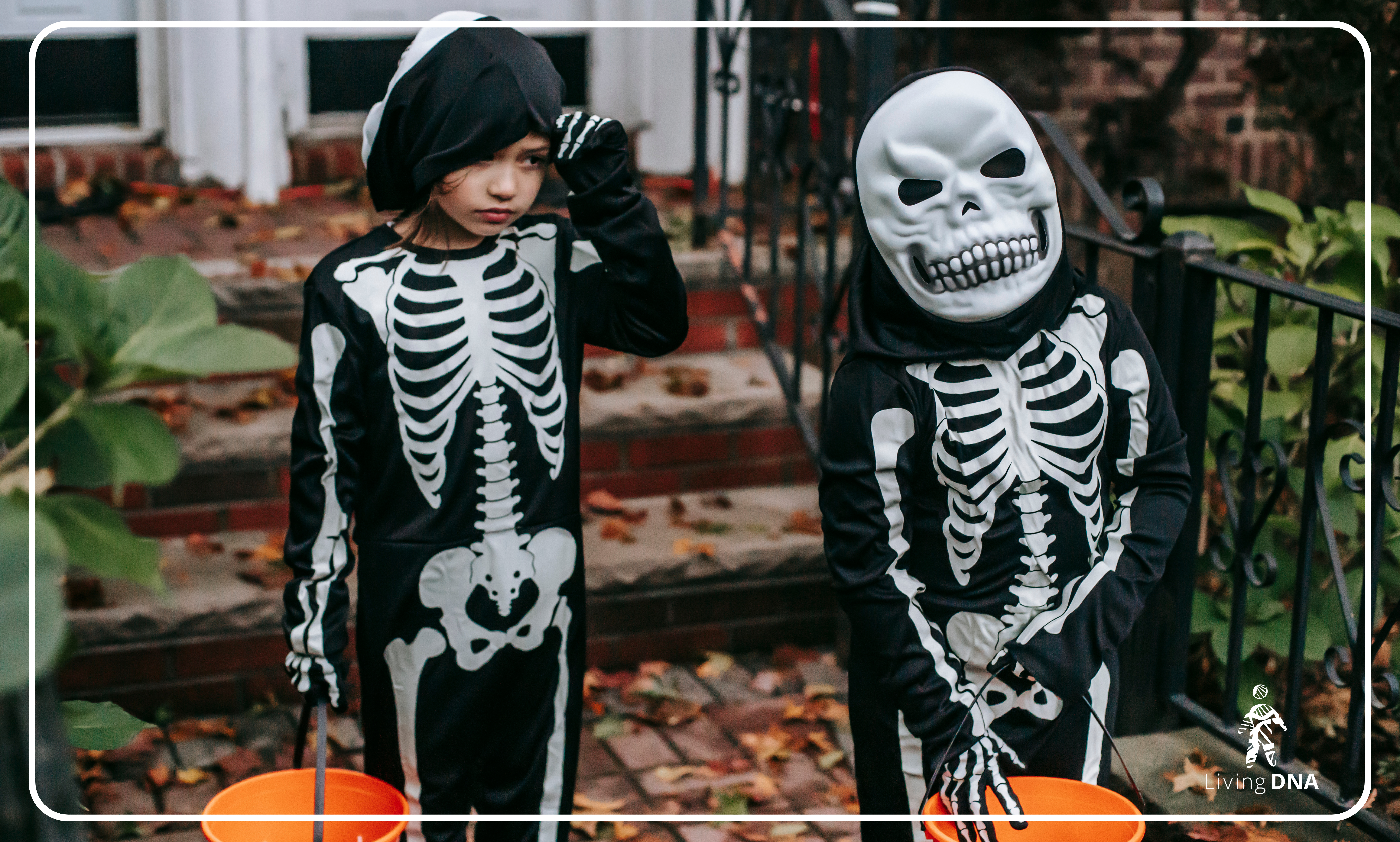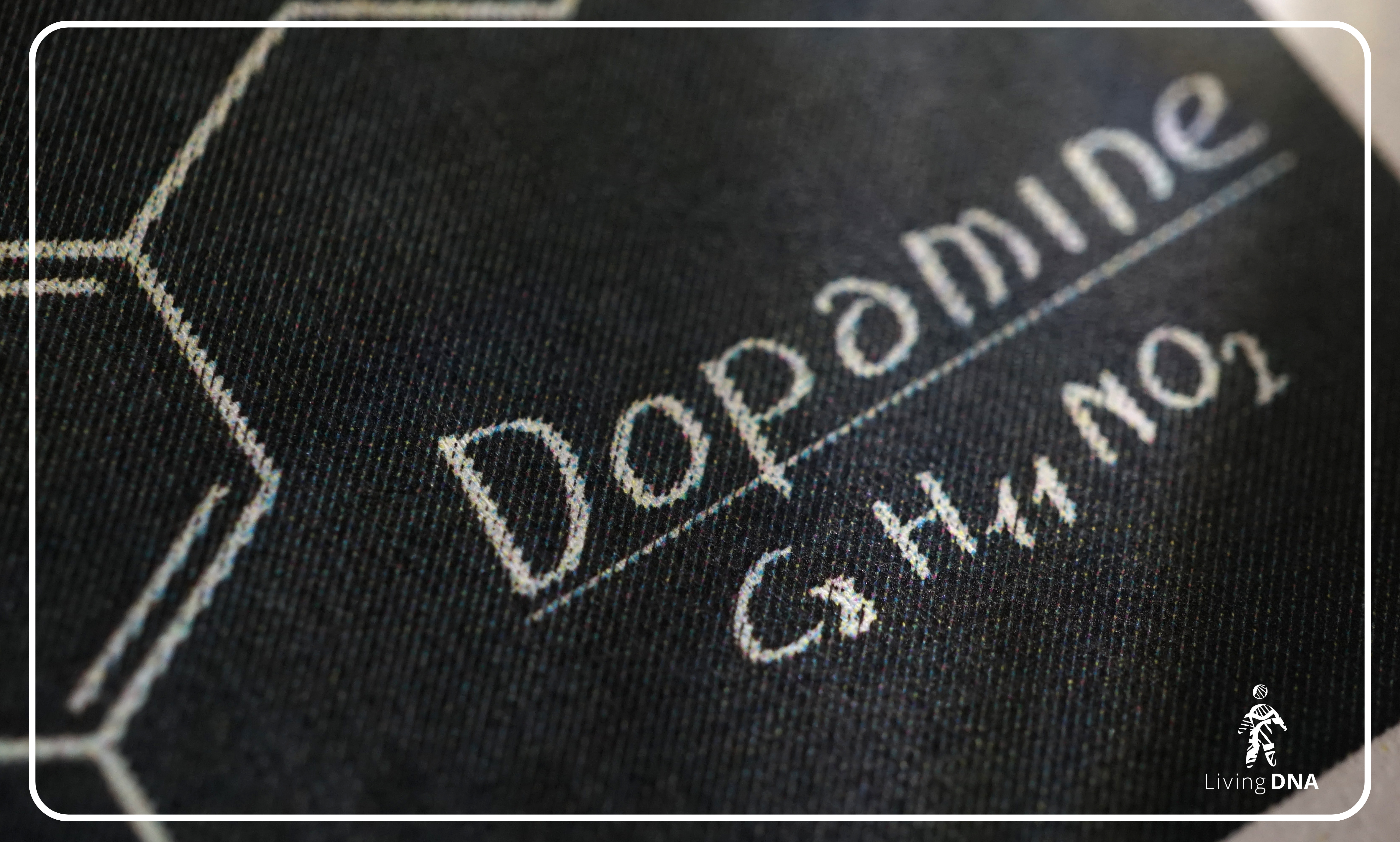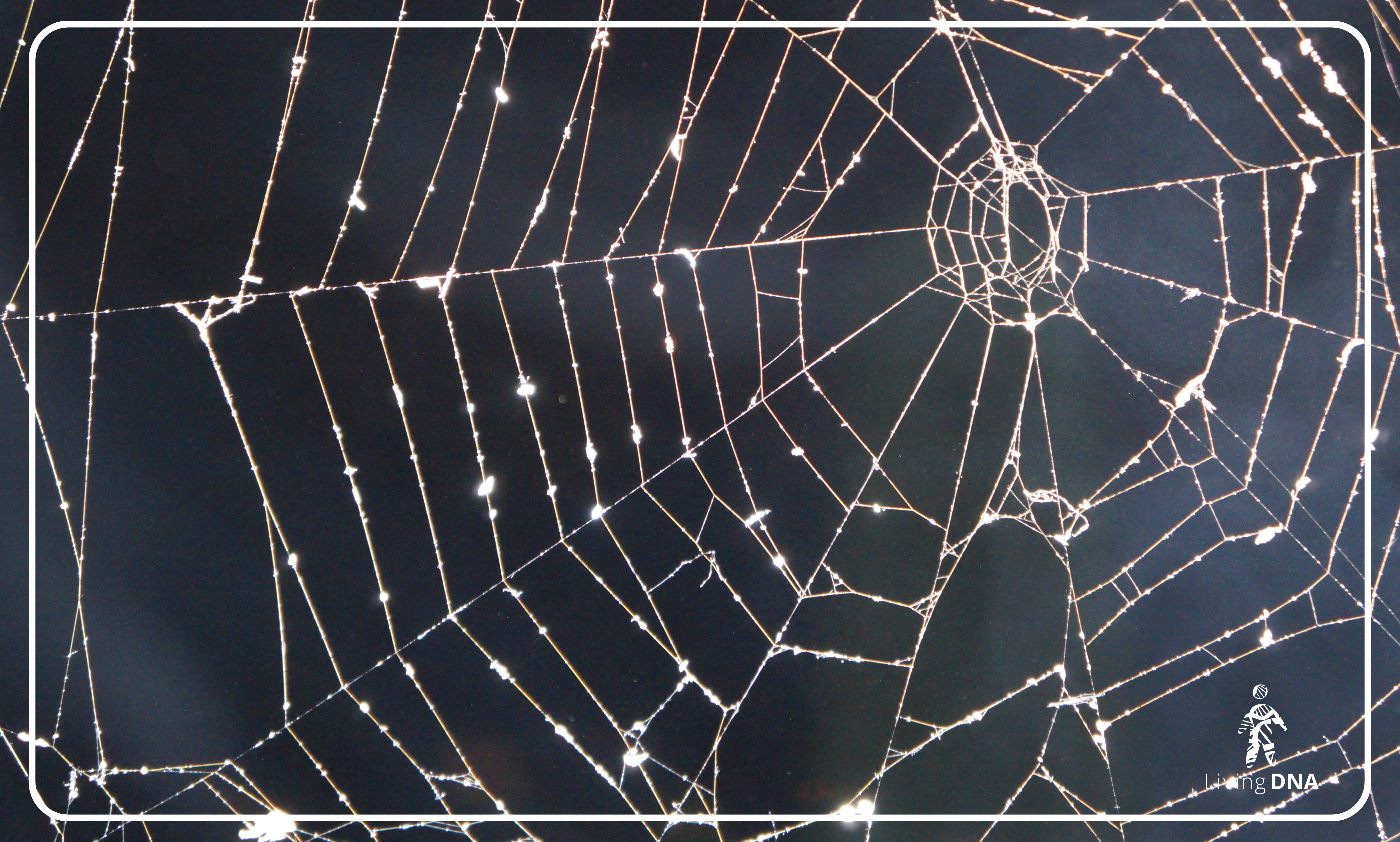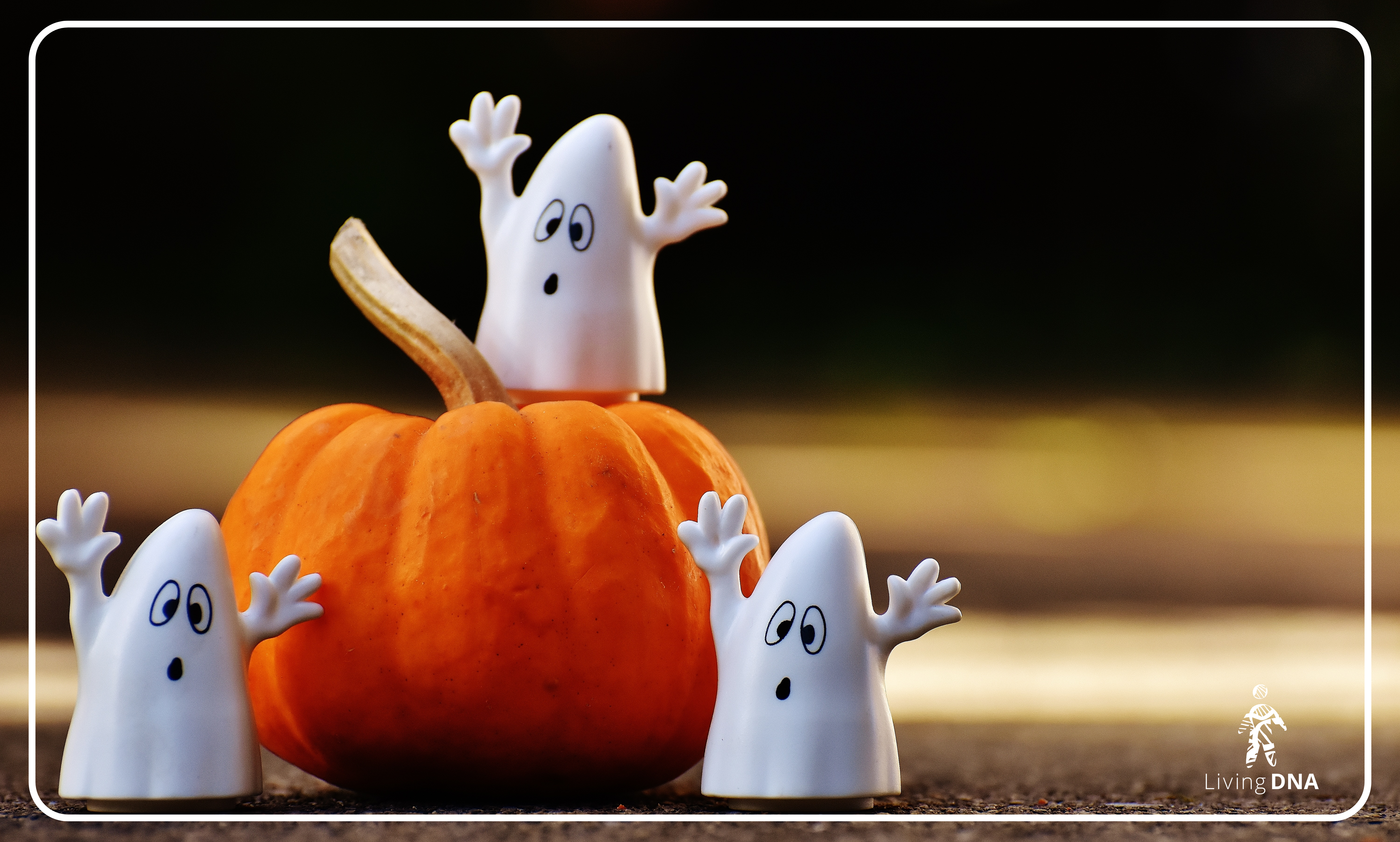The nights are drawing in up here in the Northern Hemisphere, and as the leaves turn and the temperature drops, the hairs on the back of your neck begin to stand on end when you hear those mysterious bumps in the night. Some people thrill at the feeling, relishing a scary movie or rollercoaster ride. Others avoid it at all costs, keeping themselves safe from the midnight terrors.

But how much of that response is learned during childhood, and how much is hard coded into your DNA? As we prepare for Halloween this year, let’s take a look at the genetics behind your fear response and what that means for you.
Why do we feel fear?
At a very basic level, fear is an emotion. Just like happiness, sadness, anger, or joy. It exists to help protect us, a built-in alarm system that’s ready and waiting to react when something seems dangerous. When you’re feeling fear, it means that your brain is releasing chemicals that tell your body to act quickly - either to freeze, to fight back, or to run away (the ‘Fight, Flight, Freeze' responses).
While everyone experiences fear, some people are more sensitive to it than others. While you might get a thrill from Halloween’s spooky attractions, your friend might lock the door to hide from the ghosts and ghoulies prowling for tricks and treats.

Scientists have been able to identify a few key genes that influence how our brains react to fear - although we don’t currently test for them here at Living DNA, it’s fascinating to learn how they work!
1. The COMT gene
Dopamine is a chemical that helps to govern your mood and stress response, and the COMT gene is partially responsible for regulating it. If your brain breaks down dopamine more slowly you could be more prone to feeling stressed or anxious in scary situations. On the other hand, if you process it more quickly you may feel less affected by fear, which could go some way towards explaining why some people enjoy horror films while others hide behind the sofa.

2. The SLC6A4 Gene
The SLC6A4 gene affects how your brain processes serotonin - another chemical that helps to regulate your mood. Some variants of this gene can lead to lower serotonin levels, in turn making you more prone to feeling fear or anxiety.
3. The BDNF Gene
The BDNF gene gives your body instructions on how to produce the BDNF protein, which in turn helps the neurons in your brain to survive, grow, and mature. People with some variants of the BDNF gene can struggle more with memories of frightening events, meaning that they’re more sensitive to new events that trigger a fear response. If you’ve ever had a fright that’s stuck with you, this gene might be the culprit!

Nature v. Nurture: Why do we fear different things?
As with a lot of traits, your fear response isn’t all about your genes. The environment you live in and your life experiences will also play a big role in what scares you.
Life experiences shape many of your fears - for example, someone who’s never had a bad experience with a dog might not be scared of them, but a toddler being knocked over by an overly-friendly dog in the park may be left with a long standing fear of dogs (as one Living DNA staff member can attest).

Some of the fears that other members of the Living DNA team have admitted to include some common ones - like thunder, firecrackers, caves, and spiders - and some that are less common - such as cream and rice pudding.
Culture also has an influence on fears. In some cultures, certain animals or symbols may be considered spooky, while in others they’re deemed perfectly normal.
Phobias: When fear takes over
If you experience a phobia you know that it’s a horrible feeling. The intense, irrational fear of a specific thing - like spiders or heights - go beyond feeling scared. They can trigger extreme anxiety.

Scientists think that they are a combination of your lived experiences and your genetics. If a close family member has a phobia then there’s a higher chance that you’ll develop one as well, but if you’ve never had a bad experience with spiders you may never develop a fear of them even if you’re genetically predisposed to be more frightened.
Changing your fear response
The good news is that your fear response is not always set in stone. Even if you’re more genetically sensitive to fear, there are ways to change how your brain reacts to it.
Our team member with a fear of dogs was able to spend time with some as a teenager, and has now owned and loved dogs for many years.

Whether you use exposure therapy, mindfulness techniques, or maintain a healthy lifestyle with regular exercise to support your brain’s health and make it easier to manage your fear responses**, there are ways to change how your body reacts to fear triggers.
The fun side of fear
Halloween is all about tapping into our natural responses to fear - but in a fun and safe way! Whether you enjoy getting scared or prefer to stay behind the scenes, the thrill of Halloween shows how our bodies and brains react to fear. It’s all about balancing the excitement with safety!

While we don’t test for fear-related genes at Living DNA, we do encourage you to explore the amazing ways your DNA impacts your body and your mind. Fear may be a part of the human experience, but it’s also a reminder of the incredible science behind our emotions.
This Halloween, as you navigate haunted houses and spooky surprises, remember that your body’s fear response is there to keep you safe - even if it’s just from a pint-sized trick-or-treater in a werewolf costume!
Whether you’re the type to embrace the spooky side of things, or run from it, everyone here at Living DNA wishes you a very happy Halloween!
* Living DNA does not carry out testing for any of the genes listed below. They are intended only as an illustration of how genetics can influence how your responses
**Before attempting any methods to change your fear response, such as those listed in this blog post, it’s important to consult a licensed healthcare professional. These approaches should be carried out under the guidance of an expert to ensure that they are appropriate for your individual circumstances.
